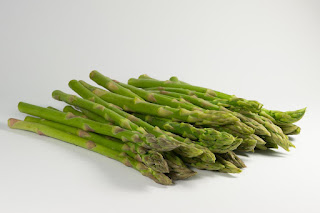The Versatile and Nutritious Asparagus: A Guide to its Benefits, History, Preparation, and Cooking
Asparagus is a versatile and delicious vegetable that has been enjoyed by humans for thousands of years. It is a member of the lily family and is closely related to onions, garlic, and leeks. Asparagus is not only tasty, but it is also incredibly healthy and nutritious. In this article, we will explore the many benefits of asparagus, its history, how to prepare and cook it, and some interesting facts about this amazing vegetable.
History of Asparagus:
Asparagus has a long and fascinating history. It was first cultivated more than 2,000 years ago in the eastern Mediterranean region, and the ancient Greeks and Romans valued it for its taste and medicinal properties. In fact, they believed that asparagus had healing powers and could cure a variety of ailments. Asparagus became popular in Europe during the Renaissance, and it was brought to the Americas by European colonizers.
Nutritional Benefits of Asparagus:
Asparagus is an incredibly healthy and nutritious vegetable. It is low in calories and high in fiber, making it a great choice for weight loss and digestive health. Asparagus is also an excellent source of vitamins and minerals, including vitamin C, vitamin K, folate, and potassium. It is also rich in antioxidants, which help to protect your body against harmful free radicals.
Health Benefits of Asparagus:
In addition to its nutritional value, asparagus has many health benefits. It has been shown to improve digestive health, reduce inflammation, and even lower your risk of certain types of cancer. Asparagus is also believed to be good for your brain, as it contains a unique compound called asparagine, which has been shown to help improve cognitive function.
How to Prepare and Cook Asparagus:
Asparagus is a versatile vegetable that can be prepared and cooked in many different ways. Here are some tips on how to prepare and cook asparagus:
To prepare asparagus, you will need to trim the woody ends off the bottom of the stalks. You can do this by snapping off the ends or by cutting them off with a knife.
Asparagus can be boiled, steamed, grilled, or roasted. To boil asparagus, simply add it to a pot of boiling water and cook for 3-5 minutes, depending on the thickness of the stalks. To steam asparagus, place it in a steamer basket over boiling water and cook for 5-7 minutes.
Grilled or roasted asparagus is delicious and easy to prepare. Simply toss the asparagus with a little bit of olive oil, salt, and pepper, and then grill or roast until it is tender and slightly charred.
Interesting Facts About Asparagus:
1. Asparagus comes in a variety of colors, including green, white, and purple.
2. Asparagus is a natural diuretic, which means that it can help to flush excess fluids from your body.
3. Asparagus is one of the few vegetables that contains inulin, a type of carbohydrate that is beneficial for digestive health.
4. Asparagus is often referred to as a "spring tonic" because it is in season during the spring and is believed to help cleanse and detoxify the body.
Conclusion:
Asparagus is a delicious and nutritious vegetable that has been enjoyed by humans for thousands of years. It is low in calories, high in fiber, and packed with vitamins, minerals, and antioxidants. Asparagus is also believed to have many health benefits, including improving digestive health, reducing inflammation, and lowering your risk of certain types of cancer. Whether you boil it, steam it, grill it, or roast it, asparagus is a versatile vegetable that can be enjoyed in many different ways. So the next time you're at the grocery store, be sure to pick up some asparagus and give it
